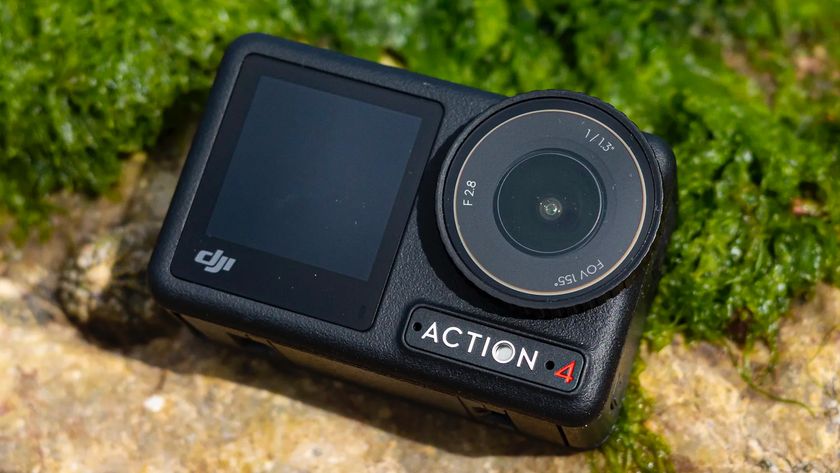Tour de France winners Froome and Wiggins named in confirmed 'Fancy Bear' WADA hack
British duo's entire TUE history leaked online

Following on from its initial hack of World Anti-Doping Agency's (WADA) Anti-Doping Administration and Management System (ADAMS), Russian cyber-hackers Tsar Team (APT28), also known as 'Fancy Bear', have released a second round of data with Chris Froome and Bradley Wiggins among the 29 athletes named.
TUE process was legitimate, says Froome
Froome refused to apply for TUE at Tour de France despite illness
Anti-doping organisations call for overhaul of WADA
Banned Russian pursuit riders threaten legal action against WADA and Rodchenkov
Russian hackers access anti-doping records - News Shorts
Froome has 'no issues' with leaked TUE data from WADA hack
Wiggins spokesperson on WADA leak: 'There's nothing new here'
WADA have confirmed the second leak of data.
'Fancy Bear' were able to access ADAMS through an account created by the International Olympic Committee for the Olympic Games in Rio.
"We condemn this criminal activity and have asked the Russian Government to do everything in their power to make it stop," said Olivier Niggli, Director General, WADA. "Continued cyber-attacks emanating from Russia seriously undermine the work that is being carried out to rebuild a compliant anti-doping program in Russia.
"We still believe that access to ADAMS was obtained through spear phishing of email accounts; whereby, ADAMS passwords were obtained enabling access to ADAMS account information confined to the Rio 2016 Games. We have no reason to believe that other ADAMS data has been compromised."
The second release of hacked data related to Therapeutic Use Exemptions (TUE) forms with Tour de France winners Chris Froome and Bradley Wiggins both named. While Froome's TUE from the 2014 Tour de Romandie was contentious at the time, there was no wrongdoing on his or Team Sky's behalf. Froome revealed the second TUE, which preceded the 2013 Criterium du Dauphine, in an interview with the Scotsman earlier this year.
Read more on this topic:
Get The Leadout Newsletter
The latest race content, interviews, features, reviews and expert buying guides, direct to your inbox!
- TUE process was legitimate, says Froome
- Froome refused to apply for TUE at Tour de France despite illness
- Report: UCI fast-tracked Froome TUE request at Tour de Romandie
- UCI claim Froome's TUE application was above board
- WADA support Chris Froome TUE decision
- David Walsh questions Team Sky's ethics in Sunday Times
- Russian hackers access anti-doping records - News Shorts
- Froome has 'no issues' with leaked TUE data from WADA hack
Both of Froome's TUEs were for corticosteroid prednisolone with 40mg per day for five days in 2013, and 40mg per day for seven days in 2014. There were three applications made for the 2014 TUE according to the documents released by 'Fancy Bear'.
Froome won both the 2013 Dauphine and 2014 Tour de Romandie.
Chris Froome's TUEs
- May 21, 2013: prednisolone (40mg oral dosage, once per day for five days)
- April 27, 2014: prednisolone (40mg oral dosage, once per day for seven days)
"I've openly discussed my TUEs with the media and have no issues with the leak, which only confirms my statements. In nine years as a professional I've twice required a TUE for exacerbated asthma, the last time was in 2014," Froome said in a statement on Thursday.
While there were two TUEs for Froome, the released data revealed six TUEs for Wiggins between 2008 and 2013. Wiggins' certificate of approval for his TUE's contain the note he suffers from a lifelong pollen allergy. The first three TUE's for Wiggins are for Salbutamol, Fluticasone, Formoterol and Budesonide and granted for 12-months.
Wiggins' June 29 2011 TUE for Triamcinolone acetone was for a one-time injection, 40mg, prior to 2011 Tour de France. A 2012 TUE dated June 26 was for Triamcinolone acetone under the same conditions. A final TUE was in 2013 prior to the Giro d'Italia, also for Triamcinolone acetone.
Bradley Wiggins' TUEs
- June 13, 2008: Salbutamol (200ug dosage, inhalation as needed for 12-months)
- December 12, 2008: Salbutamol (250ug dosage, inhalation as needed for 12-months)
- December 16, 2008: Salbutamol (2 puffs dosage, 2 times per day for 12-months), Formoterol (2 puffs dosage, 2 times per day for 12-months), Budesonide (2 inhalations dosage, 2 times per day for 12-months
- June 29, 2011: Triamcinolone acetonide (40mg intramauscular dosage, one time injection)
- June 26, 2012: Triamcinolone acetonide (40mg intramauscular dosage, one time injection)
- April 22, 2013: Triamcinolone acetonide (40mg intramauscular dosage, one time injection)
Both riders competed in the Rio Olympic Games with Froome winning bronze in the time trial, having won a third Tour de France title in July, while Wiggins won gold in the team pursuit for Great Britain.
Niggli added that he believes the 'Fancy Bear' attacks are being carried out in 'retaliation' for WADA proposing a ban on all Russian athletes from the Rio Games.
"WADA is very mindful that this criminal attack, which to date has recklessly exposed personal data of 29 athletes, will be very distressing for the athletes that have been targeted; and, cause apprehension for all athletes that were involved in the Rio 2016 Olympic Games," added Niggli.
"To those athletes that have been impacted, we regret that criminals have attempted to smear your reputations in this way; and, assure you that we are receiving intelligence and advice from the highest level law enforcement and IT security agencies that we are putting into action."
"Given this intelligence and advice, WADA has no doubt that these ongoing attacks are being carried out in retaliation against the Agency, and the global anti-doping system, because of our independent Pound and McLaren investigations that exposed state-sponsored doping in Russia."
What is a Therapeutic Use Exemption (TUE) ?
WADA can grant TUEs to athletes who "may have illnesses or conditions that require them to take particular medications” that fall under the Prohibited List. A TUE contains several caveats including how long the athlete can use the particular medication, and daily usage of the medication.









